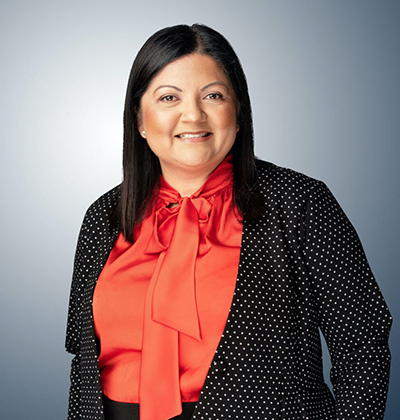It might come as a surprise, but there is a growing number of people over the age of 18 who don’t have a Will. It goes without saying that the consequences of not having an up-to-date Will are serious, but what should you consider when you’re doing one? In this podcast, Big Law’s Estate Planning Lawyer, Mahendra Mohan answers this question.
Transcript:
Dan: It might come as a surprise, but there is a growing number of people over the age of 18 who don’t have a Will. It goes without saying that the consequences of not having an up-to-date Will are serious. But what should you consider when you’re doing one?
Dan: Today I’m with Mahendra Mohan, an estate planning expert from Big Law. Mahendra, where does someone start in thinking about a properly executed will?
Mahendra: Well, Dan, essentially it starts with estate planning to decide what assets they have, then deciding who they want to leave the assets to. So taking an example, if we have a mum and dad with kids scenario. They will need to consider if they own property who will receive that, what will happen with superannuation, if for example the Dad is running a business via a trust who the beneficiaries will be once he has predeceases the Mum.
Dan: Right, so in that context, what about those parents that may have adult children and there may be an array of children doing different things? One child might be in a second relationship, another might have drug and alcohol dependence issues. How do they go about sort of sharing that estate out among a family mix like that?
Mahendra: Very good question, Dan. What we’ll need to do is to discuss in detail with the parents regarding each of their children. What that will then require is do we simply address it in the will, or do we work around the will and create trusts that are outside the will that can achieve the same result.
Dan: Right, now what about property generally? So we hear often about how a couple should dispose of property in their estate. Is there smart ways of doing that?
Mahendra: Yes there is. There are two ways essentially on how couples can own properties. The first type is known as tenancy in common in equal shares. What that means is each owner of the property would have a share allocated to them. If it’s equally, then 50% each. The downside in terms of estate planning is that if for example the husband was to predecease the wife, then the husband’s 50% share will be held in his trust by the executor to make sure that once the will is administered then if it’s to go to the wife only then will she receive it.
Mahendra: The other way of owning the property is as joint tenants. What this means is that on the death of the husband, the wife will be essentially the owner of the property. What she needs to then do is take the death certificate to the titles office and transfer will occur into her sole name.
Dan: Now, often when people consider their assets they often neglect one big one and that’s superannuation. Now does that automatically fall within the will or a person’s will, or that something separate?
Mahendra: It can be either… What needs to be considered is with the superannuation it comes down to how the principal, the owner of the super fund, has allocated to the beneficiaries. What this means is that you can simply do what’s called a non-binding nomination meaning they can simply nominate a person and then that gives the trustee the superannuation plus the discretionary powers. They can elect to pay the estate or the person who has been nominated or if, for example, in a blended family another person was to lodge a claim on the superannuation policy, then the trustee decides who receives what.
Mahendra: To make sure that that doesn’t occur in your case, what can happen is you can do what’s called a binding death nomination. What this does is it removes the discretionary powers of the superannuation trustee. This means that whoever you nominate will be trustee will need to pay them. Just as a caution, I always advise clients to liaise with their super fund to ensure that the person they want to nominate and to receive under a binding death nomination is a person approved by the super fund. If it is not an approved person then regrettably you’re giving back the power to the trustees to decide who receives the superannuation.
Dan: Mahendra, we spoke about trusts a moment ago in relation to family members that may have either a troublesome marriage or might be potentially going to separate and also children with addiction or disability issues or whatever the case might be. But what other circumstances would warrant people to consider the instigation of trusts?
Mahendra: Well, trusts are really, in essence, a protection tool. That means that if things are held by the trustee on trust for someone, then they do not form part of someone’s estate. It is a separate issue. So in those cases, if you have a house in a trust, for example, if there was a claim on the estate the trust is quarantined. So that means that the principal, ie who is the controller of the trust will need to consider putting provisions in the will, for example, on their death who will be the new trustee or the appointor, or they can simply amend the trust deed to include alternate trustees and/or appointor.
Mahendra: Now you mentioned blended families. It is also possible that someone will lodge a family provisions claim. If that were to occur, then the assets in the trust would be quarantined. So if mum and dad wish to leave a certain portion for a particular child and that trust is solely for their benefit, then they will achieve that objective not withstanding any claim on their personal estate.
Dan: In these circumstances, Mahendra, where it is advantageous to have multiple trusts like you might have a trust set up for a range of individuals within the family blend?
Mahendra: You can do that. What I would caution is by having many trusts you will need to give serious thought as to who the trustees will be to ensure that they are there to look after them. Because on the parent’s death, they are then trusting the trustees to make sure that they decide in perpetuity as well as to who the trustees will be. So it is possible to also have trusts within a will, but that is something we can discuss with the client to make sure that it really suits them before we give any recommendations.
Dan: Now I suppose crucial to people thinking about estate planning there is some incidental documents that need to be attended to as well like the enduring power of attorney. How does that sort of evolve within the estate planning process?
Mahendra: That is quite a critical document as well because unlike a will which comes to life when you die, enduring power of attorney is during your lifetime. Unlike a will, where you can stipulate who gets what but with a power of attorney the attorney actually stands in your shoes and they can make all sorts of decisions. So what we recommend is again you appoint the people you trust so that they will carry out your wishes.
Mahendra: Another critical thing is that where a person has died and there was an attorney acting on their behalf, that appointment ceases on the death of the principal. We find in practise that there have been quite a few instances where for example the wife has been using the husband’s powers of attorney and has continued to do so after his death. So what we try and tell clients is on the death of the principal the document does cease to exist. Then the will comes to life.
Dan: In closing, Mahendra, is there an appropriate time for people to be considering their estate planning? Is there sort of points along a person’s life that should warrant a call to their lawyer to make time?
Mahendra: Well, the sooner the better. I keep saying this because once you’ve lost capacity you cannot make a will or do a power of attorney. So therefore if there is a change of circumstances, ie a death of your attorney that you’ve appointed in your document, someone getting sick, getting married, additions to the family ie blended families, those are the good times to give your lawyer a call to discuss.
Mahendra: In some cases, the will may not need to be changed. But it’s always good to know that the intended beneficiary will receive once you go.
Dan: Mahendra, thanks for joining me.
Mahendra: Thank you, Dan.









